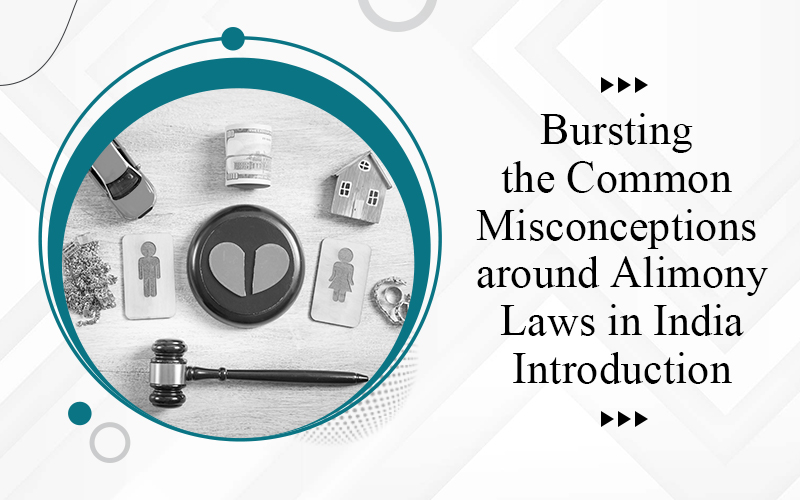Meaning of Non Bailable Warrant
NBWs stand for “Non-Bailable Warrants.” When an NBW is issued by a court, it empowers the police to arrest the individual named in the warrant and produce them before the issuing court. The court will then decide whether the accused person should be granted bail or remanded to custody based on the circumstances of the case. Non-Bailable Warrants under the code of criminal procedure are issued by courts as a preventive measure to secure the presence of individuals who are either accused of committing serious offences or who are potential witnesses. Section 73 of the Code of Criminal Procedure deals with the issuance of a warrant to any person within the local jurisdiction of the Chief Judicial Magistrate or a Magistrate of the first class for the arrest of an escaped convict, proclaimed offender, or any person accused of a non-bailable offence who is evading arrest.
Reasons for issuance of non bailable warrants
- Failure to Appear: If a person who has been summoned by the court to appear as a witness or as an accused fails to appear despite being properly served with the summons or bailable warrants, the court may issue an NBW to ensure the person’s presence in court.
- Evasion of Arrest: If the court believes that a person accused of a non-bailable offence is evading arrest, either by not cooperating with the police or by concealing themselves, the court may issue an NBW to facilitate their apprehension.
- Likelihood of Evading Justice: When there is a reasonable belief that the accused may abscond or evade justice by not participating in the legal proceedings, tampering with evidence, influencing witnesses, or obstructing the investigation, the court may issue an NBW.
Object behind issuance of Non bailable warrants
- Ensuring Presence of Accused: One of the primary objectives of issuing NBWs is to ensure the presence of the accused individuals in court during their trial. This is essential to uphold their right to a fair trial as guaranteed by the Constitution of India. The accused must have the opportunity to present their defence and respond to the charges against them.
- Preventing Tampering with Evidence: NBWs are issued to prevent accused individuals from tampering with evidence that may be used against them in court. When there is a risk that an accused person might destroy, alter, or conceal evidence, the issuance of an NBW can help secure their presence and preserve the integrity of evidence.
- Protecting Witnesses: NBWs are also used to ensure that witnesses appear in court to testify. Witnesses play a crucial role in presenting evidence and providing testimony that aids in establishing the facts of a case. Ensuring their presence through NBWs helps maintain the credibility of witness testimony.
- Upholding Rule of Law: Issuing NBWs upholds the rule of law by ensuring that individuals involved in criminal cases, whether as accused or witnesses, are held accountable for their actions and are subject to the legal process. It prevents situations where individuals could escape justice due to their absence.
- Maintaining Public Confidence: The issuance of NBWs contributes to maintaining public confidence in the criminal justice system. It demonstrates that the legal process is capable of ensuring that those who are accused of committing offences are held accountable and face trial.
Constitutionality of Non bailable warrants
- Right to Fair Trial: The Constitution of India guarantees the right to a fair trial under Article 21, which includes the right to be heard and the right to present evidence. Issuing NBWs can be seen as a mechanism to ensure that individuals involved in criminal cases, whether as accused or witnesses, are present during the trial process.
- Judicial Discretion: The issuance of NBWs is subject to the discretion of the court, and it must be based on reasonable grounds. Courts have the authority to ensure that the legal process is not obstructed, witnesses are available for examination, and the accused does not evade justice.
- Balancing of Rights: The right to personal liberty under Article 21 is important, but it is not absolute. It must be balanced with the rights of other individuals and society’s interests, such as ensuring the effective administration of justice and preventing crime.
- Procedural Safeguards: The CrPC provides procedural safeguards to ensure that NBWs are not issued arbitrarily. There must be a legitimate reason, such as failure to appear in court despite summons or a genuine apprehension that the accused might evade the legal process. The issuance of NBWs is subject to judicial scrutiny and review.
- Right to Legal Representation: Individuals against whom NBWs are issued have the right to legal representation. They can challenge the issuance of the warrant, present their case before the court, and seek appropriate remedies.
Landmark cases on Non bailable warrants
- State of Bihar v. J.A.C. Saldanha (1980): In this case, the Supreme Court of India discussed the importance of fair and just procedures when issuing NBWs. The court emphasized that an NBW should not be issued without proper consideration of the circumstances, and there should be valid reasons for believing that the accused might flee or tamper with evidence.
- Niranjan Singh v. Prabhakar Rajaram Kharote (2001): In this case, the Bombay High Court clarified that an NBW should be issued only after the court is satisfied that the person against whom it is issued has intentionally avoided attending the court proceedings.
- Jayendra Saraswathi Swamigal v. State of Tamil Nadu (2005): The Supreme Court, in this case, reiterated that while an NBW can be issued to secure the presence of an accused, it should not be a routine practice. The court emphasized that efforts should be made to ensure that the accused appears in court voluntarily.
Conclusion
The issuance of Non bailable warrant strikes a balance between the rights of the accused, the need to ensure a fair trial, and the interests of justice. It prevents individuals from evading legal proceedings, tampering with evidence, or obstructing the course of justice, thus contributing to the overall effectiveness and fairness of the criminal justice system.





8 Responses
Ydi kisi vipakshi ko section 138 m court se NBW jari hua h vipakshi jahan ka h wahn ke kreebi Thane se sampark krke direct Thane jakr client ko NBW se warrent show krke usko pkda ja sakta h sir… shoorveer_sharma2130@yahoo.com
If nbw issues on Court witness in 498a case because of non present for trial and non submission of evidence, can police arrest witness immediately and put in jail till the next hearing.???
NBW kaha issue Kiya jata hai, Thane me ya us court ko jis jurisdiction me abhiyukt rahta hai ?
NBW is issued against the criminal for 5 times in the small cause court. Everytime the criminal comes the next day and cancels the NBW by paying a minimal fees.
How many times an NBW can be issued ??
Is there any limitation to this ??
As per supreme court instructions. BW/NBW can be recalled for upto 5 times
WHat if a NBW is issued and that person is missing / absconding since a year?
Will the accused’s family be harassed or what will be the next step?
The family will inquired primarily by the police, but to proceed legally against them the court order is must.
whether second application will lie after dismissal of petition under Sec.70(2) Crpc?